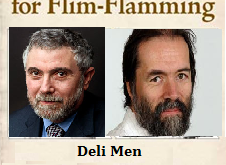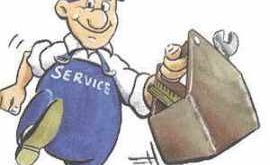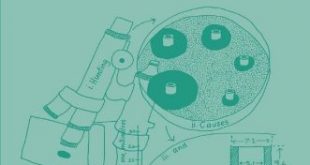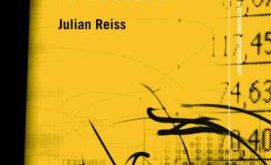Mainstream flimflam defender Wren-Lewis gets it wrong — again! Again and again, Oxford professor Simon Wren-Lewis rides out to defend orthodox macroeconomic theory against attacks from heterodox critics. A couple of years ago, it was rational expectations, microfoundations, and representative agent modeling he wanted to save. And now he is back with new flimflamming against heterodox attacks and pluralist demands from economics students all over the world:...
Read More »Textbooks problem — teaching the wrong things all too well
Textbooks problem — teaching the wrong things all too well It is well known that even experienced scientists routinely misinterpret p-values in all sorts of ways, including confusion of statistical and practical significance, treating non-rejection as acceptance of the null hypothesis, and interpreting the p-value as some sort of replication probability or as the posterior probability that the null hypothesis is true … It is shocking that these errors seem...
Read More »Heterodoxy — necessary for the renewal of economics
Heterodoxy — necessary for the renewal of economics A sense of failure is, for all intents and purposes, being translated into a context of relative success requiring more limited changes – though these are still being seen as significant. Part of the reason that they are seen as significant is that changes from within mainstream economics do not have to be major in order to appear radical. It is our contention that heterodox economics is being...
Read More »Analogue economies and reality
Analogue economies and reality Modelling by the construction of analogue economies is a widespread technique in economic theory nowadays … As Lucas urges, the important point about analogue economies is that everything is known about them … and within them the propositions we are interested in ‘can be formulated rigorously and shown to be valid’ … For these constructed economies, our views about what will happen are ‘statements of verifiable fact.’ The...
Read More »The power that really counts
The power that really counts [embedded content] Advertisements
Read More »Trumponomics: causes and consequences
Trumponomics: causes and consequences Real-world economics review issue no. 78 22 March 2017 Trumponomics: causes and consequences Trumponomics: everything to fear including fear itself? 3 Jamie Morgan Can Trump overcome secular stagnation? 20 James K. Galbraith Trump through a Polanyi lens: considering community well-being 28 Anne Mayhew Trump is Obama’s legacy. Will this break up the Democratic Party? 36 Michael Hudson Causes and consequences of...
Read More »Your model is consistent? So what!
Your model is consistent? So what! In the realm of science it ought to be considered of little or no value to simply make claims about the model and lose sight of reality. There is a difference between having evidence for some hypothesis and having evidence for the hypothesis relevant for a given purpose. The difference is important because scientific methods tend to be good at addressing hypotheses of a certain kind and not others: scientific methods come...
Read More »The man who crushed the mathematical dream
The man who crushed the mathematical dream Gödel’s incompleteness theorems raise important questions about the foundations of mathematics. The most important concerns the question of how to select the specific systems of axioms that mathematics are supposed to be founded on. Gödel’s theorems irrevocably show that no matter what system is chosen, there will always have to be other axioms to prove previously unproved truths. This, of course, ought to be of...
Read More »To be a good economist one cannot only be an economist
To be a good economist one cannot only be an economist [embedded content] The master-economist must possess a rare combination of gifts …. He must be mathematician, historian, statesman, philosopher—in some degree. He must understand symbols and speak in words. He must contemplate the particular, in terms of the general, and touch abstract and concrete in the same flight of thought. He must study the present in the light of the past for the purposes of the...
Read More »Always on my mind
Always on my mind [embedded content] Advertisements
Read More » Lars P. Syll
Lars P. Syll






